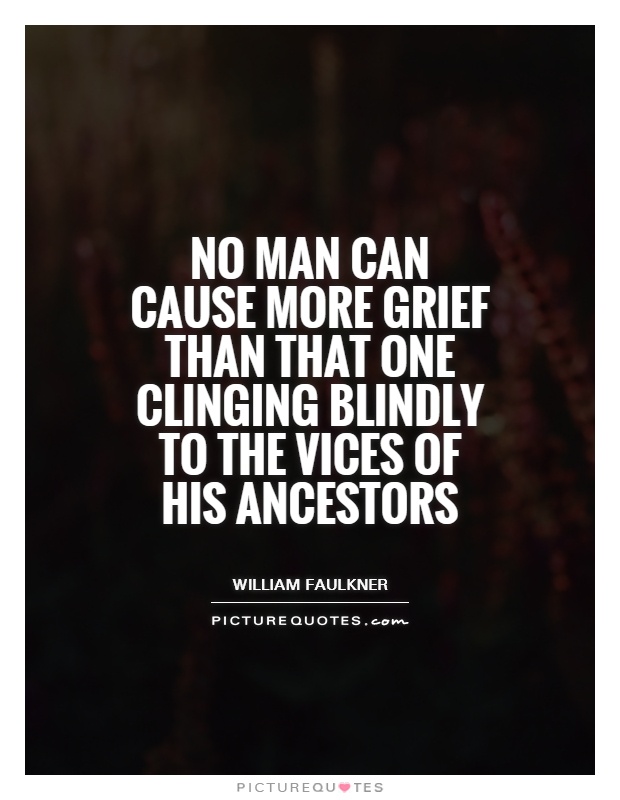No man can cause more grief than that one clinging blindly to the vices of his ancestors

No man can cause more grief than that one clinging blindly to the vices of his ancestors
William Faulkner, a renowned American writer known for his complex narratives and exploration of the Southern Gothic genre, often delved into the themes of family, heritage, and the weight of the past on the present. In his works, Faulkner frequently examined the destructive nature of clinging blindly to the vices of one's ancestors, illustrating how this can lead to immense grief and suffering for both the individual and those around them.Faulkner's novel "Absalom, Absalom!" is a prime example of how the sins and vices of one's ancestors can have a profound impact on future generations. The novel follows the tragic story of the Sutpen family, whose patriarch, Thomas Sutpen, is driven by his own dark past and desire for power and control. Sutpen's ruthless ambition and disregard for morality ultimately lead to the downfall of his family, as his actions set off a chain of events that result in betrayal, violence, and ultimately, the destruction of his own legacy.
Through the character of Thomas Sutpen, Faulkner explores the idea that blindly following in the footsteps of one's ancestors can have devastating consequences. Sutpen's refusal to confront his own demons and break free from the cycle of violence and oppression that plagued his family for generations ultimately leads to his own downfall and the ruin of those he loves. Faulkner suggests that by clinging blindly to the vices of his ancestors, Sutpen not only perpetuates a cycle of suffering and grief but also denies himself the opportunity for redemption and growth.












 Friendship Quotes
Friendship Quotes Love Quotes
Love Quotes Life Quotes
Life Quotes Funny Quotes
Funny Quotes Motivational Quotes
Motivational Quotes Inspirational Quotes
Inspirational Quotes